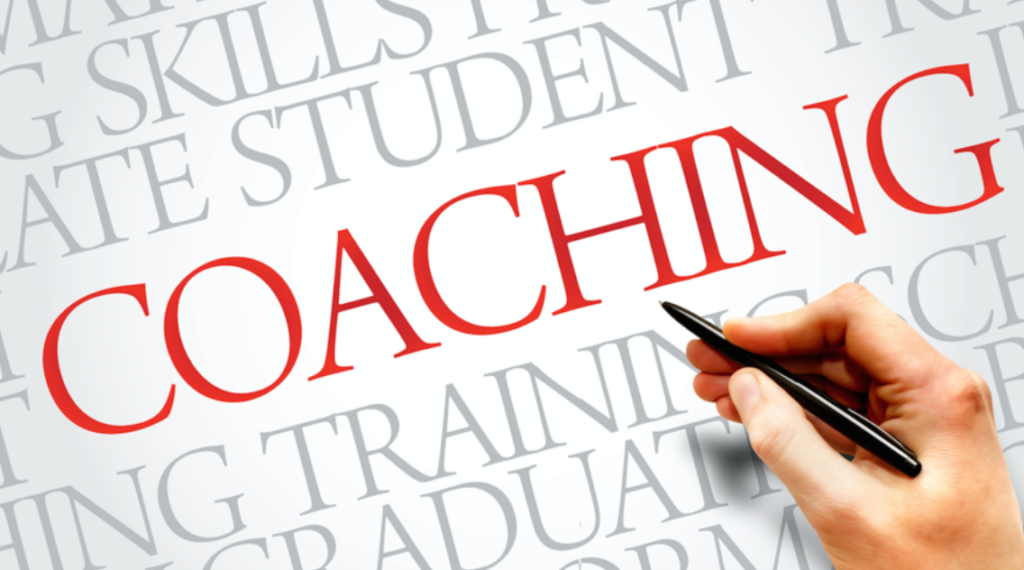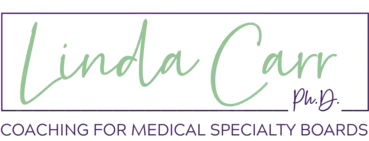
Today, specialty board certification is an expected credential for physicians in clinical practice.
Preparing for medical boards is costly (ranging from $1,000 to $2,000 or more), time-consuming (it’s not unusual to spend three to six months or longer in preparation), and stressful (failing national boards can affect a physician’s ability to practice by losing hospital privileges).
In my coaching practice with physicians (at all levels and specialties) preparing for their national boards (first-timers and repeaters), I witness frustration and confusion over what they believe it takes to pass the boards. Some have likened board preparation to a cognitive marathon. One physician shared with me that one of the first things he does to prepare for boards is to change his diet and start an exercise program to accelerate his momentum.
Since content alone is insufficient for passage, successful preparation requires a multi-faceted approach—a game plan, time management, best resources, and rebooting skills for successful learning and test-taking.
While many medical specialty organizations offer board reviews, these programs do not necessarily result in successful passage. In their book How to Study for Standardized Tests, Sefcik, Bice, and Prerost (2013) reveal that the result of over two decades of research on the impact of review courses on exam performance suggests that review courses do not significantly increase test scores for the majority of individuals who take them. However, effective review courses share three features: lectures and exercises designed to improve metacognition, test-wiseness, and test-taking skills.
While it’s important to use a variety of study resources, physicians need to know how to use them efficiently and effectively. Because their time is limited, this is precisely where professional learning coaches can help–-by providing strategies and resources to accelerate their work. Here are just a few ways professional learning coaches can turn board failure into successful board passage:
1. Helping clients diversify their study skills and stay focused. For some individuals, it may mean learning to use metacognitive strategies to plan, monitor, and assess their understanding and performance or adding other study skills to add variety and productivity to the review process.
2. Preparing a “Game Plan” to manage the board preparation experience. Studying for boards can be overwhelming, so learning how to manage it step-by-step can help reduce the stress.
3. Increasing client efficiency and effectiveness. New ideas and strategies for board preparation, including time management, can increase motivation and productivity.
4. Sharing the most effective tips, tools, and techniques to expand the client’s knowledge-seeking and test-taking skills. Learning specialists can help maximize your learning potential, provide just-in-time resources, offer aids to make your learning “stick”, and accelerate your review.
5. Meeting regularly with clients to help them stay on track, not feel alone, and reduce stress. Checking in regularly with your coach keeps you accountable and on task.
6. Advocating a structured review process that includes specific daily and weekend study routines. Knowing how to implement a structured review and modify your study as the exam date approaches are critical factors to your success.
7. Monitoring the client’s progress and offering options to increase the client’s productivity. Your progress in preparing for boards can be measured in several ways, for example, (a) the number of multiple-choice questions completed; (b) test scores and their trend over time; (c) time spent studying; and (d) your assessment of your progress– identifying what went well or needs improvement and making appropriate changes.
What explains the high failure rate on medical boards?
Each year hundreds of physicians across all medical specialties fail their national board examinations. The failure rate for initial certification has been as high as 15% to 30%, depending on the year and the medical specialty. Even worse, examinees that repeat their certification boards generally fail at a higher rate than first-time takers.
In a 2013 blog, David Shaywitz, MD, stated two possibilities for the declining pass rate: (1) the test is getting harder, or (2) millennials lack the study habits of their elders because they have become great “looker-uppers.”
While knowing the content is critical for successful board passage, other factors such as how you prepare for boards, the time interval between residency and boards, and the type and quantity of resources used also play an important role.
Just as patients look to physicians for advice and treatment about their health, physicians can work with academic coaches to help make their board preparation less stressful, more efficient, and eventually successful.
_______________
Linda L. Carr, Ph.D., Founder/Principal at Coaching for Medical Specialty Boards, is a medical educator and learning specialist who empowers physicians preparing for specialty boards through virtual, one-on-one coaching. Visit www.DrLinda Carr.org to learn more about her program and download her FREE Study Guide.
